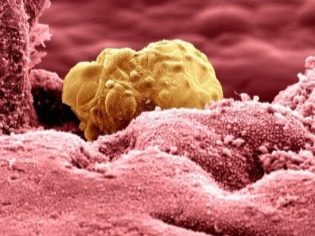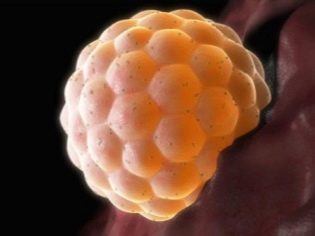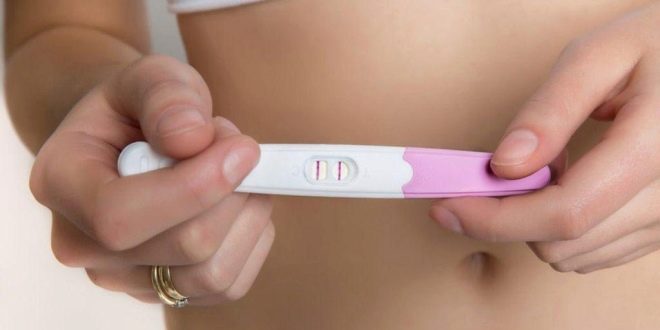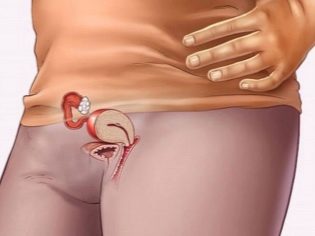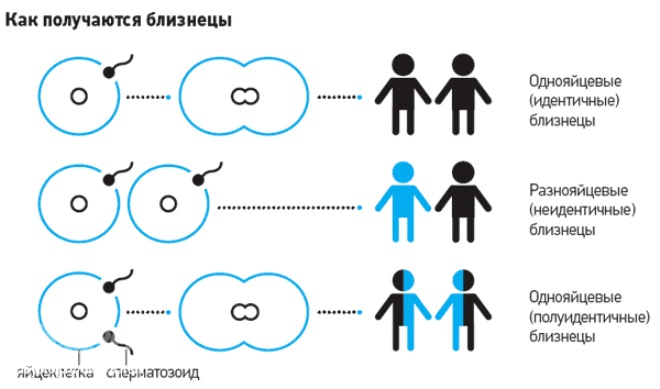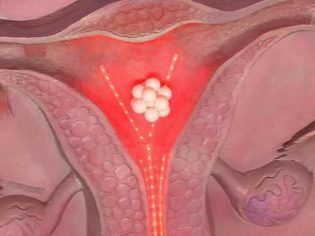Fetal washing during pregnancy
The appearance of bleeding from the genital tract of a woman after conception is not considered normal, but there are several exceptions. Previously, such a phenomenon among the people said that "the fruit is washed." How, what and why the embryo is washed, we will tell in this article.
What it is?
When it comes to washing the fetus, it should be clearly understood that the causes can be both pathological and natural, requiring no intervention. Under the wash often implant bleeding implies. It develops about a week after ovulation.
Within 7–9 days, the egg cell is crushed, enlarged, transformed from a zygote into a blastocyst, and after about a week from the fallopian tube enters the uterus. At this point, it is decided whether to be pregnant at all, since the blastocyst needs to attach itself to the functional layer of the uterus - the endometrium.
Implantation proceeds in two stages. During the first blastocyst, it sticks to the endometrium, and within a few hours, the second stage begins, when the membranes of the fertilized egg begin to produce certain enzymes to dissolve the endometrial cells.
The blastocyst needs to penetrate the endometrium deeper to gain access to the blood supply from the mother’s blood vessels. If it turns out, they say about the coming pregnancy and successful implantation. But the destruction of endometrial cells, no matter how minimal and microscopic it may be, does not remain unnoticed by a woman’s body. Most of them have a headache, lower abdomen, mood is unstable, or sleepiness builds up — protective mechanisms work.
But there are women (they are few, but they still exist), in which the destruction of endometrial cells is accompanied by a small bleeding - “daubs” on the daily lining. Blood from small vessels destroyed by blastocyst enzymes during implantation must leave the body, and it exits through the vagina. Most often, the woman for whom pregnancy is a surprise, at this point does not really give the discharge value.
She understands that she still has about a week before menstruation, and habitually writes off the discharge for hormonal disruption, for the stress experienced the day before, for the recent cold, due to which the cycle is “strange”. She thinks that her period began just ahead of time.
But implantation bleeding or ablution of the fetus, as they say about him, differs in that in a few hours or a day it stops completely. A baby develops in a woman’s body, there should be no more abnormal discharge.
In the period of the month, of course, do not come, and made the test shows pregnancy. It is here that the woman remembers that she had seen scarce spotting on a gasket a week earlier and was beginning to worry.
Nothing to fear - Implant bleeding does not harm either the mother or the child, does not affect his growth and development, the formation of organs and systems, the features of the course of pregnancy. If it does not happen, it is also perfectly normal.
When do you need to worry?
Worrying and urgently going to the doctor’s office is necessary when in the early stages there is spotting that is not associated with implantation. No discharge, except for light and transparent or whitish, should not normally appear in the early stages.
That is why brown, red, scarlet, pink, and any other discharge is not a “baby being washed”, but a real threat of abortion.
So, if the discharge did not appear a week after ovulation, but later, if they did not stop within a few hours, and after a day the sanitary pad continues to get dirty, The reasons may be as follows:
- progesterone is not enough in the pregnant woman’s body; hCG levels are lowered - hormonal support for developing pregnancy is insufficient, the help of a doctor and the prescription of hormonal drugs are needed to save the pregnancy;
- the fetus froze after implantation a few days after implantation - it is rejected by the woman’s body, a bloody “daub” begins, which quickly turns into more abundant blood discharge;
- there is a threat of spontaneous abortion due to endometrial insufficiency, increased tone of uterine muscles, diseases of a chronic or acute nature in the mother.
The woman herself can determine the pathology. If the test has already shown pregnancy, then there can be no talk about ablution of the fetus.
The presence of chorionic gonadotropin in the urine, to which the test strip from the pharmacy responds, indicates that the implantation took place at least a week ago. The appearance of blood is a pathology, the seriousness of which and the causes of occurrence must be determined by the doctor.
Rare Cases - Truth and Myths
On women's forums, you can find stories about how someone learned about pregnancy only in the third or fourth month, since there were monthly periods and there were no signs. Sympathizing with the authors of the posts will immediately write that "the baby was washed." Consider why this is possible, and how to treat such stories.
In a woman, during one menstrual cycle, one egg matures and leaves on the day of ovulation. Less often - two. If one is fertilized, then one baby is obtained or twins are monozygous. If two separate ova are fertilized, they will turn out fraternal twins.
But in rare cases, a woman matures two eggs, but they come out of the follicles on the ovaries with a difference of several days. Thus, the first one may not be fertilized for a number of reasons (there was no unprotected intercourse during this period, sperm cells did not survive, etc.), but the second one can be fertilized at the exit.
In this case, the implantation falls on a period consistent with the onset of the next menstruation. The woman begins monthly, but they are shorter than usual, and perhaps less abundant. They stop after 2-3 days and no longer occur, as the second egg is attached.
The stories that the monthly came every month before 4-5 months of pregnancyusually not true or the woman perceived bleeding associated with the threat of interruption or hormonal deficiency, for menstruation, but "some kind of strange."
Washes in signs
Old superstitions said that the washed fruit will be happy, that it will not cry, all its mother’s blood takes with it its tears.
In nomadic peoples, washing the fetus was considered a good sign only when the birth of a male child was expected. It was believed that so he becomes a courageous and outstanding warrior who will not be afraid of either blood or death. And to the little girl who was washed in the early stages of pregnancy, the wise men of nomadic tribes and shamans promised an unhappy marriage, widowhood.
Today, superstition should not be seriously considered, especially since we now know exactly what is happening and why.
On the bleeding in early pregnancy says a world-famous professor in the next video.


